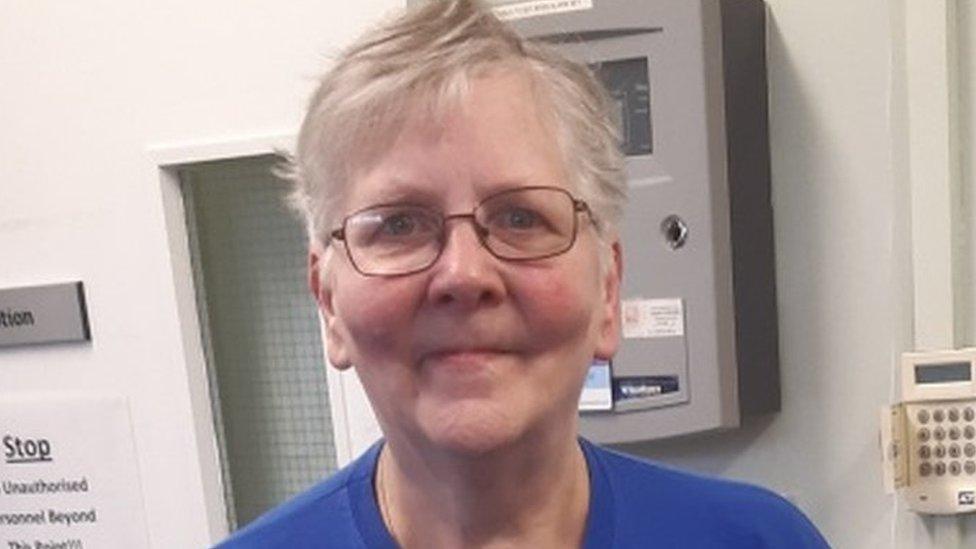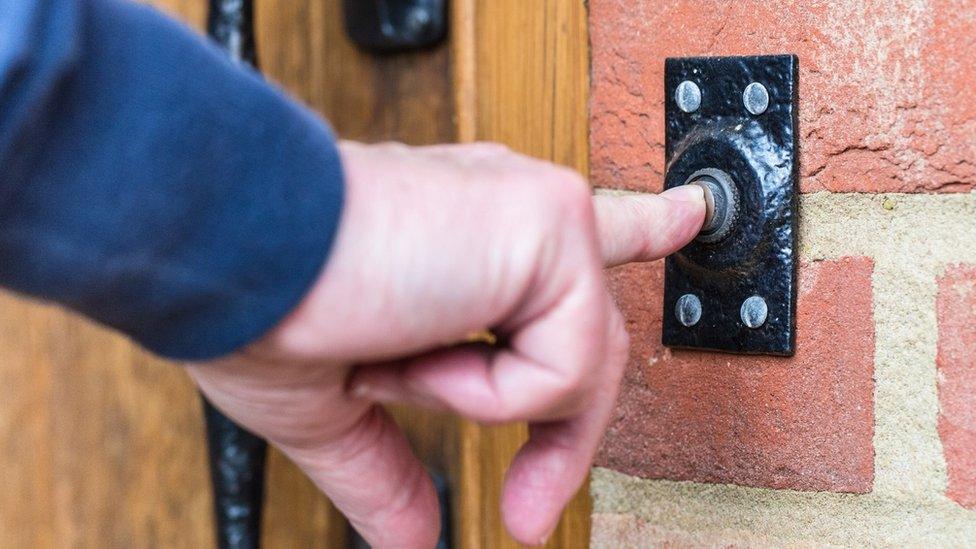Coronavirus: Loneliness and lockdown exploited in romance scams
- Published

Organised criminals will be exploiting loneliness during lockdown to take money from romance scam victims, a charity has said.
Victim Support said people's increased confidence in using the internet to meet and talk leaves them vulnerable.
Research in one region shows romance scam victims are groomed, then tricked out of an average of £47,000.
One has spoken of how her "heart ruled my head" when sending money to the man she thought she loved.
Mary, not her real name, was already in the fraudsters' grip before the coronavirus outbreak.
But, as the virus started to spread, she believed he was in a country heavily affected, giving him the opportunity to trick more money out of her.
She was also feeling the kind of loneliness common among many vulnerable people during the current crisis.
'Red flags'
The 62-year-old, who is a widow, met "Arnold" after using a dating site for the very first time.
She said they spoke morning, noon and night for five months about a shared love of music and family.
But the man she thought was an American living overseas was, in fact, a organised criminal gang working shifts to private message or speak to her over a crackly line.
"There were red flags, but I kept denying them," she said. "You think you have found the love of your life, and invest yourself 100% into the relationship."
After about a month, Arnold told her stories such as suffering from an accident, his need for a working laptop, and business problems. He told her how worried he was by the coronavirus outbreak, an event that gave him another chance to ask for money.
She sent him funds via money transfer, and followed his request not to tell anyone because "he would be embarrassed when he eventually met members of the family".
She ended up sending thousands of pounds. The money is now lost. It came from savings for a car or a holiday, and included some money that belonged to her daughter, who she first lied to rather than come clean about the loss.
"Eventually I knew I could not lie to my daughter anymore," she said. "It is the emotions that you are left to deal with which is the hard part. I cannot trust anyone, and there is a lot of grief.
"In a fantasy world, I let myself think he is going to turn up and be real. You can be too emotionally involved in it."

Where to go for help
Victim Support offers free, confidential advice via Supportline on 08 08 16 89 111 and or live chat, external which are open for 24 hours every day
The charity's new online resource for victims of crime, My Support Space, external, is designed to help manage the impact that crime has had on individuals
Scams can be reported to Action Fraud, external

This "addiction" to hear someone saying nice things to you, and which blinds you to the reality, is common among victims, according to Lisa Mills, senior fraud manager at Victim Support in Sussex.
During the current lockdown, when "the feelings of loneliness can be overwhelming", the risks were all the greater, she said.
Sussex police run Operation Signature, external, a campaign to identify and support vulnerable victims of fraud.
Romance scam cases were increasing, Mrs Mills said, even before lockdown - a picture reflected nationwide.
Criminal gangs "meet" people on dating sites, then take the conversation onto private messaging, build up a picture of their victim, then take any opportunity to steal money from them.

Online safety advice

Criminals who commit romance fraud trawl through profiles and piece together information such as wealth and lifestyle, in order to manipulate their victims
Police can investigate and help to provide support, but often cannot get the money back
It is very simple for fraudsters to cover their tracks by masking IP addresses and using unregistered phone numbers
Never send money to someone online you have never met
Think twice about posting personal information that could be used to manipulate or blackmail you

Mrs Mills said that, in her experience, victims were split fairly evenly between men and women, with some losing so much money they were forced to remortgage their home.
Most struggled to accept they had been scammed, even after the language used in messages was analysed to show they must have been written by different people in a gang, not just one individual.
There is thought to be huge under-reporting of these scams, for the same reason.
"It has never been more important to reach out and know how to protect people," Mrs Mills said, urging anyone who may be concerned not to feel embarrassed but to seek help.


LOCKDOWN UPDATE: What's changing, where?
SCHOOLS: When will children be returning?
EXERCISE: What are the guidelines on getting out?
THE R NUMBER: What it means and why it matters
LOOK-UP TOOL: How many cases in your area?


- Published26 September 2019

- Published3 April 2020

- Published23 September 2019

- Published11 February 2020
